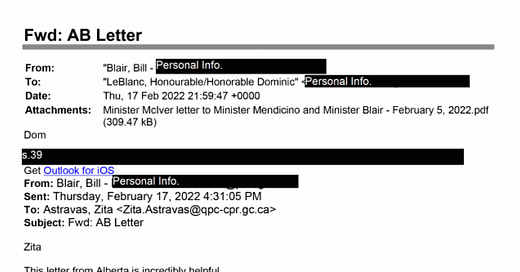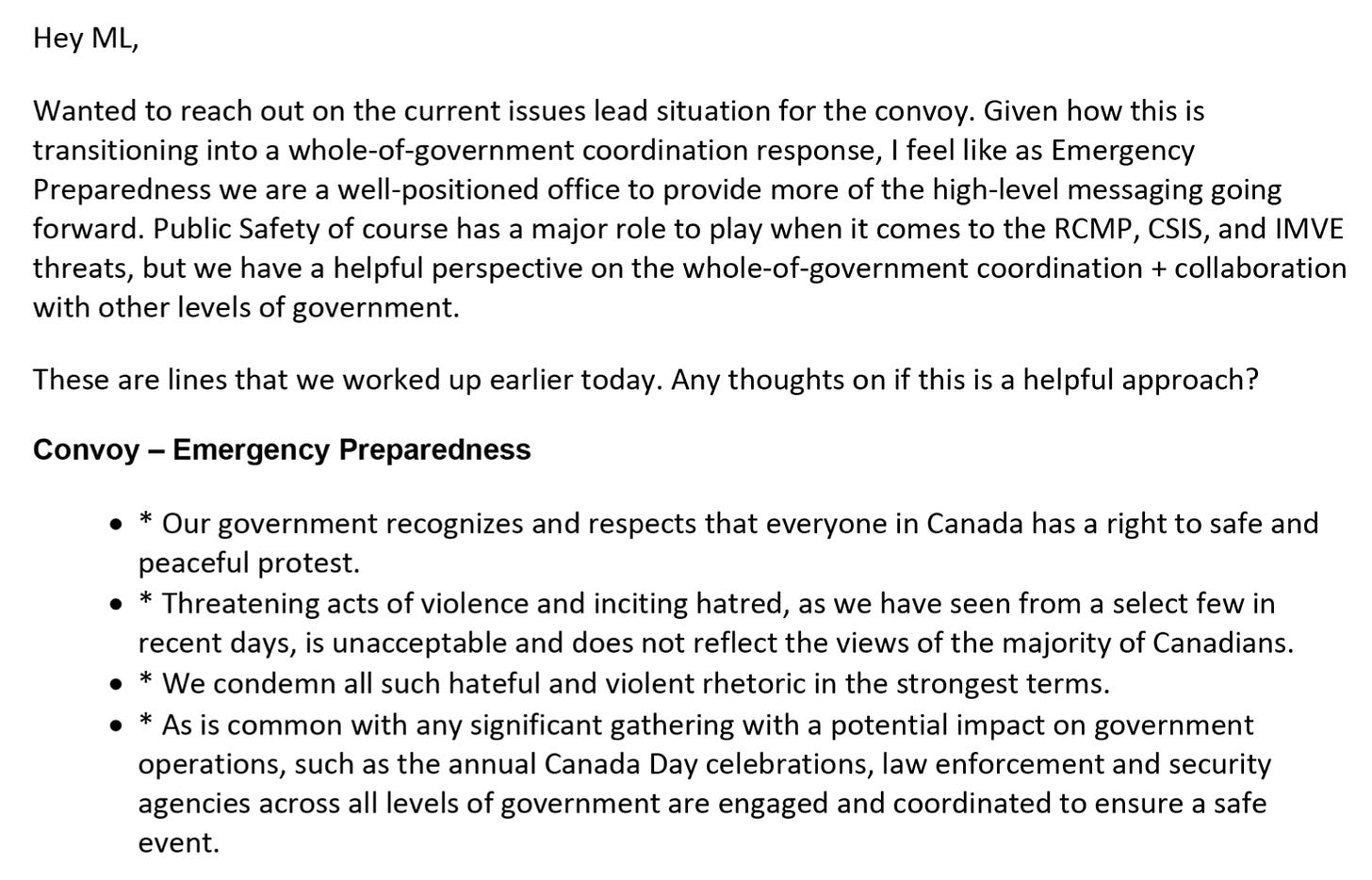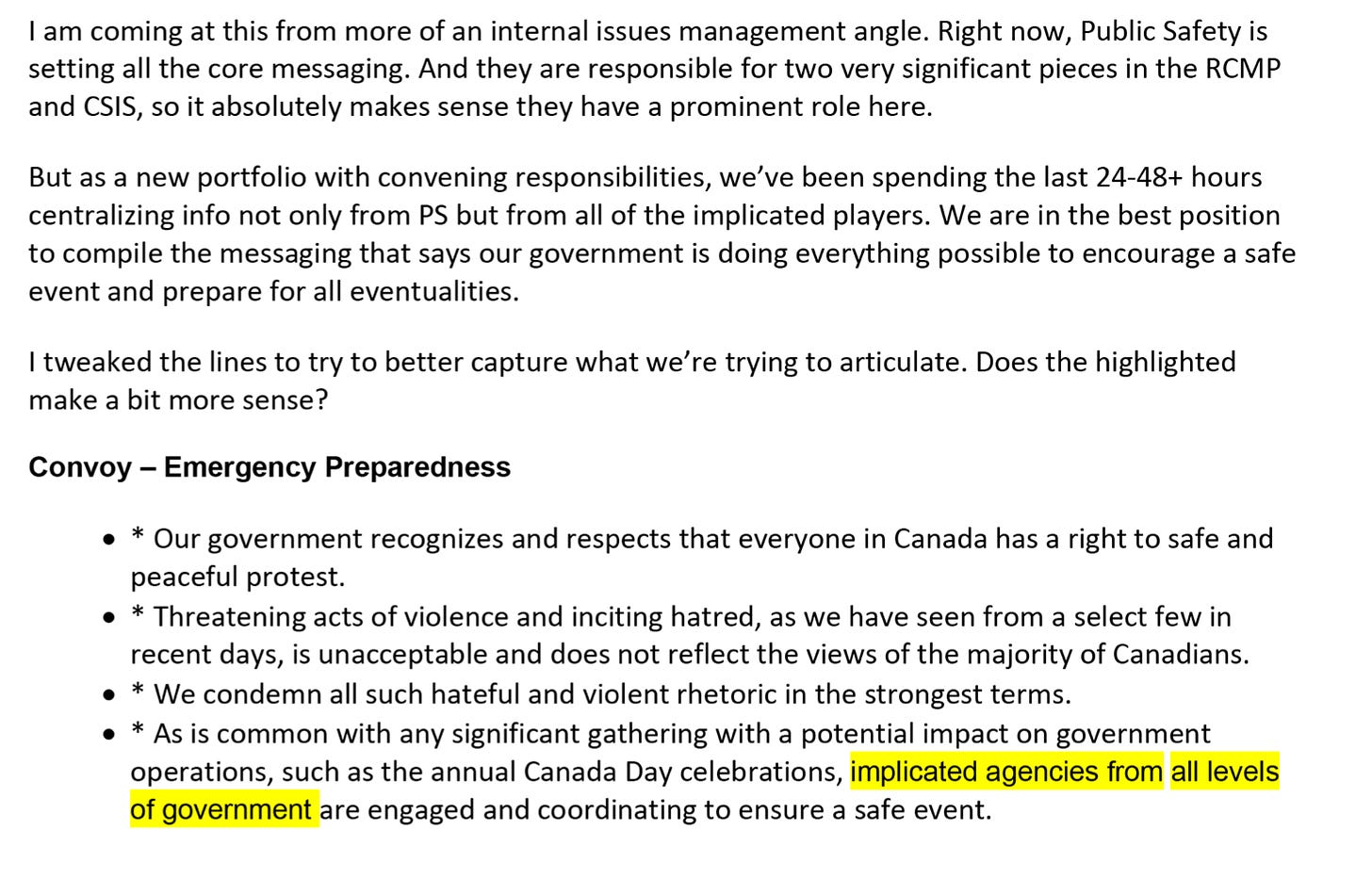Daniel Sanger’s 2021 book Saving the City: The Challenge of Transforming a Modern Metropolis is a history of Projet Montréal, the left-ecologist municipal political party that has governed Montreal since 2017. Sanger, a good reporter for many years, was a key participant in Projet Montréal’s success. Near the end he describes the arrival of a new staffer, an unfamiliar character who “had worked with a Trudeau minister in Ottawa.”
In their first meeting, the newcomer says: “I have only one job and that’s to keep Sue happy.” Sue is Sue Montgomery, who had become the borough mayor of Montreal’s west-end enclave Notre Dame de Grâce. At this point in the book, Sanger and the newcomer from Ottawa both work for Sue. Sanger considers the newcomer’s statement and replies: “I’ve always felt that my job is to respect the campaign promises we made, so maybe we’ll complement each other.”
Sanger then says he isn’t much interested in communications or press releases. “She said these things interested her very, very much.” They clash again, more seriously, on a third issue: “She tells me there’s no hurry for our administration to keep its promises to make cycling safer in the borough with more bike lanes and other measures: If the NDG’s noisy cyclists’ association is mad at us, it might make us more popular with drivers, she says.”
A month later Montgomery fires Sanger, but neither Montgomery’s political career nor that of the newcomer from Ottawa ends up lasting much longer.
I’ve started today’s account of events at the Public Order Emergency Commission with a distantly related anecdote because, well, that’s the sort of thing I do. I won’t identify the staffer from Trudeau’s Ottawa here, though Sanger does in his book. As soon as she showed up in his narrative, I started thinking of her as an archetype, a mythic figure: she is, simply, the person who likes to focus on communications and political effects over real-world results. Or rather, the person who thinks communications and political effects are real-world results. We get a lot of that in Ottawa these days. No wonder it has become an export.
I thought about all this when, catching up with a few days’ events at the convoy commission, I found this email Bill Blair sent to his chief of staff, and then to a cabinet colleague.
“This letter from Alberta is incredibly helpful,” he writes to his top staffer. “They are asking for Federal assistance. They say they have exhausted all existing authorities and resources. They are practically begging us for help.”
Blair’s note concludes: “Give them everything they need.”
Just kidding! That is not how his note ends. He did not write anything like that. No, what Blair actually wrote was, “We should think about publishing this.”
So one definition of today’s Ottawa is that it’s the place where, when somebody begs you for help, you find it incredibly helpful to publicize their difficulty.
The letter from Alberta that Blair was crowing about — first to Zita Astravas, then to Dominic LeBlanc — was the same one Ric McIver had been texting Blair about for 10 days at this point, the one I discussed at the bottom of my last convoy commission post. McIver was the Alberta cabinet minister responsible for handling the smaller blockade at Coutts, on the border with Sweet Grass, Montana. He had asked the feds for heavy equipment to help clear the highway so the border could be open. Blair had ghosted McIver for days. In testimony Monday at the Public Order Emergency Commission, Blair described what he’d been doing while he wasn’t answering McIver.
“Immediately,” he said, “that request I forwarded to the Department of National Defence and to Minister Anand.” He heard back from a deputy minister “a number of days later” that the Canadian Forces had nothing for McIver. The DM, Rob Stewart, advised Blair to write to McIver and confess that the feds had come up snake-eyes. But Blair asked Stewart and his staff to search high and low, which took more time. Their luck didn’t improve. Better write to McIver.
“And eventually a letter was approved and I signed off on it thereafter, it goes back to officials to be sent,” Blair reminisced. “I understand in my subsequent messaging with Minister McIver that he never received that letter. I have no explanation for that.”
I talk sometimes in this corner about “state capacity,” which is vaguely defined as governments’ ability to get big stuff done. Where’s the high-speed rail, can’t anyone here build a pipeline, we were promised jetpacks, everybody sing along. It seems to be worse than we knew. Not only did the government of Canada have trouble clearing roads and highways during the February mess, it seems to have forgotten how to deliver the mail.
But never let it be said that Bill Blair lacks resilience. Having failed to cough up tow trucks, return mail, or the six seconds of thumb-typing that would have sufficed to keep Ric McIver in the loop, when the chance came to conscript Alberta as an ally in the invocation of the Emergencies Act, despite the explicit protest of the province’s premier — well, Bill Blair was on it.
I admit to some fascination with Bill Blair’s sense of time. In 2020 I covered the strange case of an expert panel on solitary confinement that disbanded at the end of its one-year mandate without ever receiving usable data from Blair’s department. The panel’s head investigator, criminologist Anthony Doob, had written to Blair complaining of this strange circumstance, without answer. I now wonder whether the return letter was forever stranded on what we must now call “the McIver Pile.”
I spent a month in July 2020 trying to publicly shame Blair into calling a true, public commission of inquiry, with the power to compel witnesses under oath, into the gruesome mass murder in Nova Scotia, with some woefully belated success.
It is a real problem that the resulting Mass Casualty Commission in Nova Scotia didn’t call Blair to explain why he put so much effort into ensuring the Commission would never see the light of day.
But on Blair’s role in the element of the Nova Scotia story that did get a lot of coverage — the question of whether Blair or his office pressured Lucki to turn the massacre into an advertisement for government firearms policy — well, the Ottawa commission offers some hint about what’s likely to be true.
First, we learn from Lucki’s own Ottawa testimony that she didn’t need any pressure to be in constant, constant contact with the political level, and that her need to share what they were thinking with her police colleagues — at one point Teams-chatting with her RCMP colleagues while she texted with the OPP commissioner — bordered on the compulsive.
Second, these Trudeau Liberals are, as a subculture, very much of a piece with Daniel Sanger’s difficult co-worker in NDG. There is no issue that fails to arouse their group marketing instincts.
Brendan Miller, the lawyer for an association of convoy protesters, has been drawing controversy and Youtube pageviews for his attempts to advance the notion that the government and the mainstream media were conspiring to smear the protesters. His energetic pursuit of this theory got him kicked out of Rouleau’s hearing room yesterday. Many readers will have followed all of this. For others, a quick update is available on Wesley Wark’s National Security and Intelligence Newsletter, which is written by a prominent historian and is becoming must-reading.
I think Miller’s thesis pushes the evidence further than it’s warranted. But his fascination with government communications has turned up many emails and text exchanges which are useful in their own right, in illustrating the sociology of the Trudeau government. Such as an exchange involving Mary-Liz Power, who works in the Prime Minister’s Office, and Alex Cohen, who works for Blair’s colleague Marco Mendicino. Power writes to some third party:
“I think there could be an opportunity in getting in on the narrative of the truckers, particularly with the research the LRB is doing into their backers. My thoughts of framing here would be similar to what the PM and Blair said last year when January 6 [the siege of the US Capitol] occurred; our democracy is something we need to nurture and protect every day.”
Cohen responds:
“Thanks. I had an initial chat with my boss and he’s supportive but wants to wait a day or two. There’s a danger that if we come down too hard they might push out the crazies.”
One more thing. This exchange happened on the morning of Tuesday, Jan. 25, three and a half days before the convoy rolled into Ottawa. And already the kids are merrily chirping about “opportunity” and “narrative” and “framing.” Plainly, you’ve got to get up pretty early in the morning to get ahead of the Trudeau government’s marketing instincts.
By Thursday, Jan. 27, as the trucks converged on the capital, political staffers were converging on a message. Caroline Williams, the director of parliamentary affairs in Blair’s office, wrote to Power in the PMO, cc’ing other colleagues, about “high-level messaging:”
Power is totes into it, but she suggests Marco Mendicino might be better-positioned than Blair:
Sam Khalil at the PMO plays peacemaker, arguing there’s plenty of looming crisis to go around:
Williams offers a unified field theory of core messaging:
By now seven political staffers are on this email chain, four in Trudeau’s office and three in Blair’s.
Here as earlier, when I covered the parts of the commission testimony that touched on Jim Watson’s City Hall and Peter Sloly’s Ottawa Police Service, my intent isn’t to condemn so much as to say, well, isn’t this the damnedest thing. Each unhappy workplace is unhappy in its own way, as Tolstoy almost said, and by the winter of 2022 unhappy workplaces were the only kind on offer.
What seems germane about Trudeau’s bubble is that no other organization canvassed by Rouleau’s team of lawyers came anywhere close to spending this much time wondering how to curate and market the mess, like a little bonsai tree of steadfastness and virtue. As Daniel Sanger pointed out shortly before the mayor of NDG fired him, it’s not the only way to think. But it’s definitely a way.
On the podcast: esperanza spalding
Hey, Wednesday means a new episode of The Paul Wells Show. This week, a change of pace, both from my usual guests and from everything I was just telling you about.
Bassist, singer and bandleader esperanza spalding won the Best New Artist Grammy in 2011, when she was still using upper-case letters and when her competition included Justin Bieber and Drake. Much confusion ensued on Twitter: whoever this person was, she sure wasn’t Justin Bieber or Drake — and she was, approximately, a jazz bassist. The culture isn’t usually in the habit of recognizing such people in its rites and ceremonies.
But spalding’s talent extends quite far beyond traditional categories, and her trajectory — youngest bass instructor at the Berklee College of Music; frequent guest at the Obama White House; Professor of The Practice at Harvard, a position she quit this week over differences in decolonization policy — suggests she’s entirely sui generis. This summer she came to Ottawa to perform with the National Arts Centre Orchestra. I interviewed her in front of an audience at the NAC — about music, creativity, leadership; about having a shot at pop stardom and passing it up; about working with the legendary saxophonist Wayne Shorter. I’m glad to be able to share this conversation with you.
Here’s the podcast on Apple Podcasts:
Here’s where to find it on other platforms.
Here’s who helped make this all happen. Our Ottawa partner is the National Arts Centre, who managed the essential task of getting me, esperanza spalding, and an audience into the same room. Our Founding Sponsor is Telus. Our Title Sponsor is Compass Rose. The University of Toronto’s Munk School of Global Affairs and Public Policy made me their inaugural Journalist Fellow-In-Residence. Antica Productions handles production for the podcast. The Toronto Star and iPolitics distribute and promote The Paul Wells Show. Kevin Breit recorded and performed the music.
Thanks to them all. If you like what you hear there or read here, please tell a friend.












I think this shows that literally nobody in the government was actually concerned about "threats or acts of serious violence" - a necessary criterion for legally invoking the EA.
It also shows that they couldn't care less about any actual inconvenience to actual Ottawa residents. Zexi Li and her friends were only ever, at best, props in the government's stage play.
The only thing that mattered at all to the government was whether the convoy would erode their public support.
Thanks to a slavish media, they got better results on that score than, in any decent world, they deserved.
‘Not only did the government of Canada have trouble clearing roads and highways during the February mess, it seems to have forgotten how to deliver the mail.’ This is the content I’m here for.